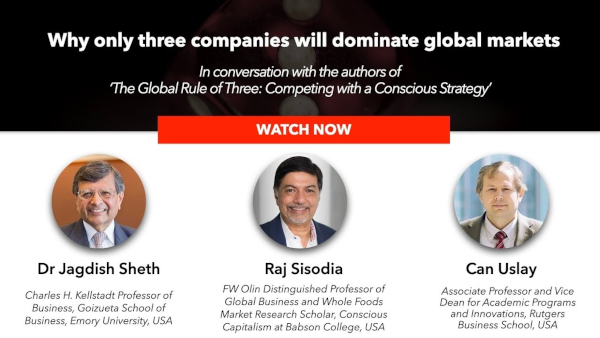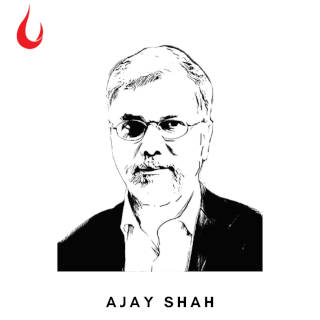[The Death of Socrates. By Jacques-Louis David, Public domain, via Wikimedia Commons]
Good morning,
In Socrates’ Way, Ronald Gross shares a few anecdotes from the life of the Greek philosopher that are relevant even today. Here are three extracts from the book.
Socrates spent his life in the agora—the teeming, rowdy centre of fifth-century Athens. He loved to spend hours in the potter’s shed, the wine merchant’s stall, the workshop of Simon the sandal maker. He wanted to understand what made for excellence in every trade and profession and how it could be a model for wise living or effective action. “His conversation was full of things he learned from the potters, the horse-trainers, the politicians, the prostitutes,” said one of his friends. “Most of the philosophers talk just ideas, but Socrates seems to have learned something from everyone, and can use it to make his ideas clear.”
---
Socrates was invited to dinner practically every evening, because once he arrived the conversation always crackled with energy, relevance, and wit. He thrived on friendship and sociability and could drink most of his friends under the table—but never lost his composure. One of the few Platonic dialogues not named for a friend, the “Symposium,” refers not to an academic discussion but to a boisterous party with so many notable attendees that Plato gave up on selecting one of them for its title.
---
Despite his profound gift for friendship, Socrates was no glad-hander. Quite the contrary. His continual questioning of everyone led his fellow Athenians to compare his queries to the incessant bites of the insects that buzzed around the butts of farm animals in the Attic summer. Their stings, like Socrates’ questions, could drive a creature crazy. And Socrates spent thirty years doing that to some of the most powerful figures in Athens.
His fellow Athenians bit back. Imagine how Socrates must have felt when he attended the opening performance of Aristophanes’ The Clouds and discovered that the comic playwright’s new work was about him. Aristophanes portrayed Socrates as the blow-hard proprietor of a “thinkery.” He showed the philosopher suspended in a basket, literally with his “head in the clouds,” dispensing nonsense to his rapt disciples.
Athenians loved this kind of free-spirited debate. Legend has it that Socrates himself relished the lampoon and in the middle of the performance stood up so that he’d “make an easier target.”
In this issue
- How to stay local in a ‘Global Rule of Three’ era
- How to price Covid-19 vaccines
- How to embarrass your pet dog
Have a great week ahead.
How to stay local in a ‘Global Rule of Three’ era

In a discussion based on their latest book The Global Rule of Three: Competing With a Conscious Strategy, three thought leaders—Jagdish Sheth, Rajendra Sisodia and Can Uslay—talk about why only three companies are starting to dominate the market. And the implications of this global phenomenon for businesses and leaders. The discussion was moderated by Founding Fuel’s Indrajit Gupta.
Here’s an extract from the summary.
What does the Global Rule of Three mean for businesses that want to stay local or regional?
- They have the option to be healthy, viable specialists in their defined markets. In a narrowly defined specialist market, you can be quite successful. They can be market or product specialists.
- For example, SouthWest Airlines. They started as a carrier within Texas. After deregulation, they grew and became a national carrier. And though they are now No. 2 in the US, they never became an international carrier. They have some international flights, but to places you’d like to go for vacation, and not to any commercial destination. They are basically a specialist at the global level. And they are doing very well.
- Another example is Yildiz Holding, a Turkish food manufacturer that specializes in biscuits. It is the No. 3 biscuit manufacturer in the world after it bought out chocolatier Godiva and United Biscuits. And it is competing with Parley in biscuits also.
- Going from specialist to generalist can be a challenging process.
Dig deeper
- Watch the full discussion or read a summary: Why only three companies will dominate global markets
How to price Covid-19 vaccines
There is a broad consensus among the public health fraternity that the Rs 250 cap on vaccines is too low. In an interview with Ajay Shah, economist and professor at O.P. Jindal Global University, Govindraj Ethiraj raises the question on the consequences of raising the price to say, Rs 1,000.

“We have to let markets work it out and we will discover at what prices which vaccines are available. We don't know the answer. No civil servant knows the answer.”
Here’s Shah’s answer:
“I see many things going on in the dynamics. The first is that we should note that Serum Institute of India is not the only game in town. We can import vaccines like the Pfizer vaccine. For some reason, the government blocked the import of the Pfizer vaccine into India. The Johnson & Johnson vaccine can also be imported, and so on. There are numerous vaccines coming up all over the world, and all of them should be used in India. We should have an approval system saying that if any Organisation for Economic Co-operation and Development country has approved a vaccine, it should be fair game for importing it into India and using it on a large scale. All over the world, there is a giant ramp-up of vaccine manufacturing under way. And there will be many, many price points at which various people in India will try to obtain certain vaccines. We have to let markets work it out and we will discover at what prices which vaccines are available. We don’t know the answer. No civil servant knows the answer.
“Then there is the question of managing the cold chain, or the temperature required to store a vaccine. The Pfizer vaccine requires a more careful cold chain, the Serum Institute’s Covishield is less finicky, and so on. Here is one novel idea. The Johnson & Johnson vaccine [needs] one dose, not two. Maybe there are remote locations in India where, from an organisational and operational perspective, it is actually easier to just go to one place, deliver one shot and return. In principle, a private company will be willing to pay 2x the money for that one dose of the vaccine, because it greatly reduces their logistics of cold chain cost. I am just saying that private companies will discover what to do.”
Dig deeper
- Read the full interview: 'Price Caps Limit Private Sector COVID-19 Vaccinations To Cities'
How to embarrass your pet dog

(Via WhatsApp)
Still curious?
- Our latest weekly column, ICYMI: FF Recommends: How to plan the jab
- Rishikesha Krishnan, Director, Professor of Strategy at IIM-Bangalore on why we should study the success of global gurus like Jagdish Sheth: What does it take to become a management guru?
- Nachiket Mor on how a diverse group of individuals and institutions came together to launch telemedicine app Swasth: A platform approach to bridging India’s healthcare gap
Tell us what you think and find noteworthy.
And if you missed previous editions of this newsletter, they’re all archived here.
Bookmark Founding Fuel’s special section on Thriving in Volatile Times. All our stories on how individuals and businesses are responding to the pandemic until now are posted there.
Warm regards,
Team Founding Fuel
(Note: Founding Fuel may earn commissions for purchases made through the Amazon affiliate links in this article.)

